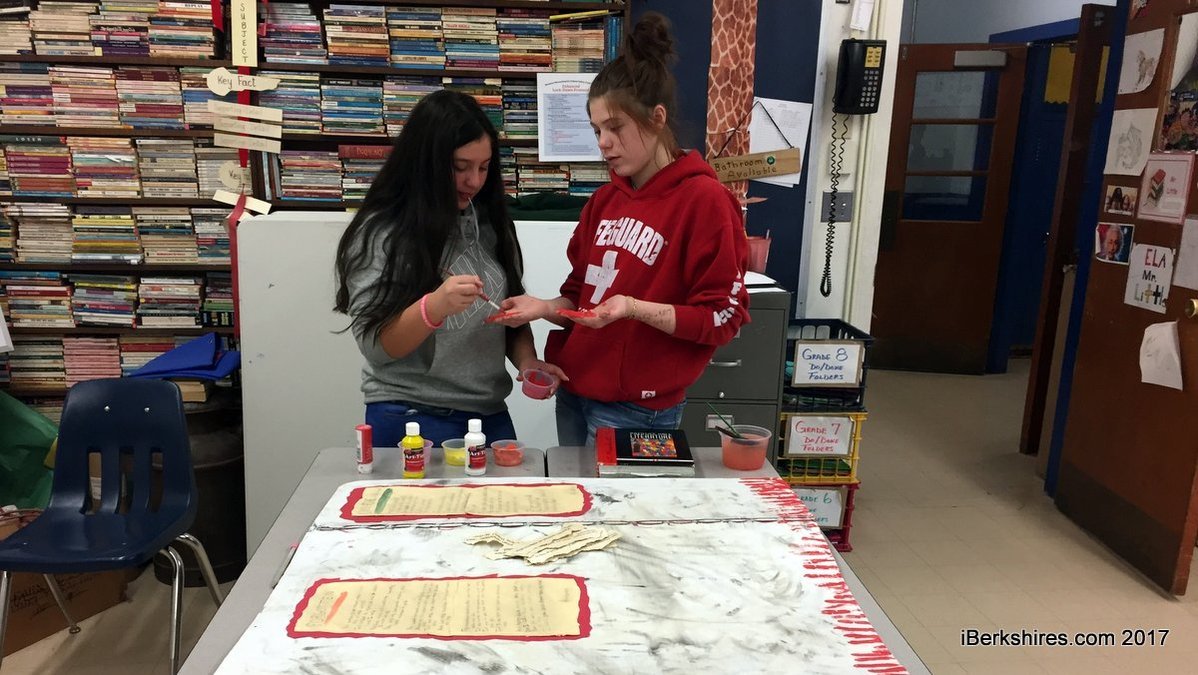
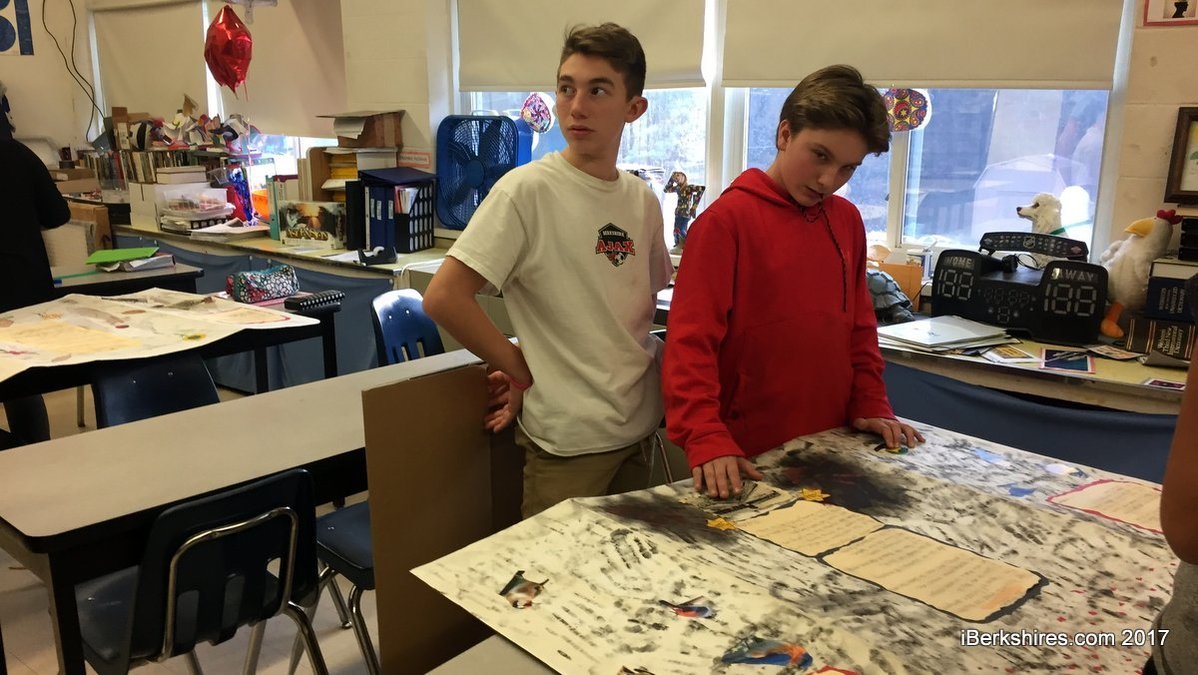
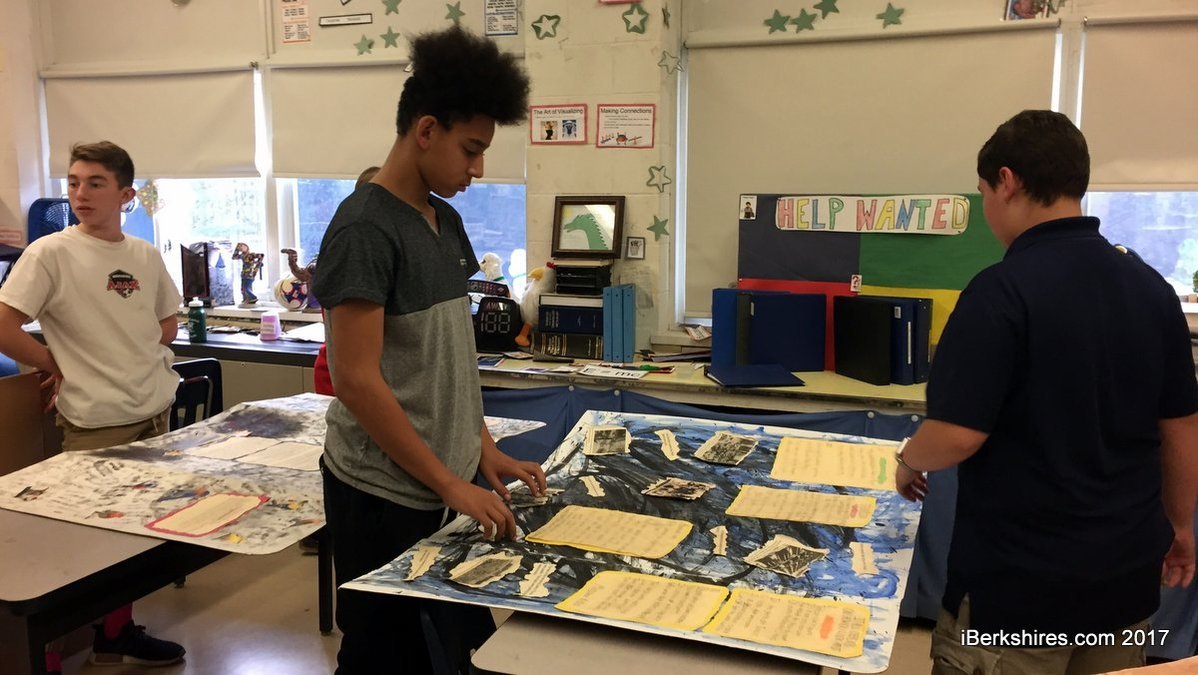
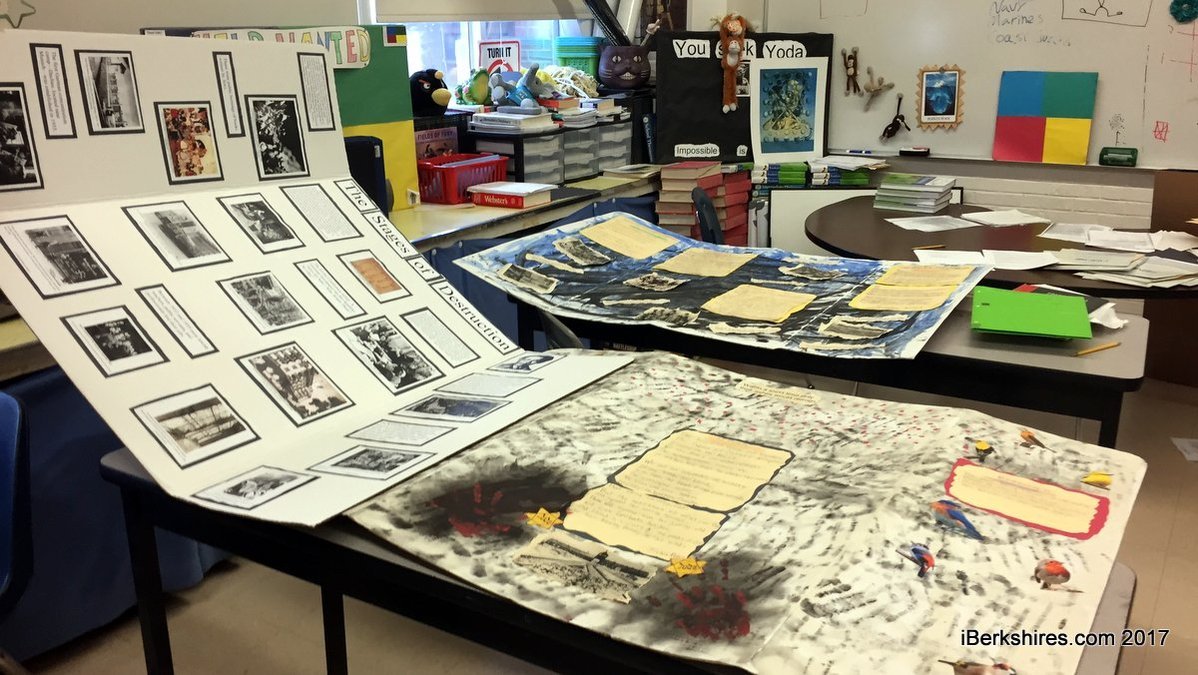
Clarksburg Elementary Holocaust Exhibit Runs Wednesday
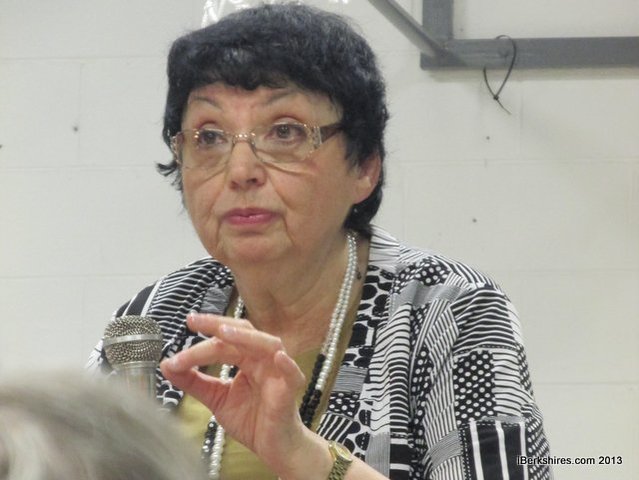
CLARKSBURG, Mass. – Clarksburg School eighth-graders will host the school's 14th annual Holocaust Exhibit with Terezin survivor Inge Auerbacher on Wednesday night.
English teacher and exhibit organizer Michael Little said this year's exhibit will be different and instead of exploring the Holocaust purely academically, students will create a "poetic puzzle" based on Auerbacher's book "I Am A Star" and the book "I Never Saw Another Butterfly" which is a collection of poetry and art from children that were in Terezin.
"Invention can be a little scarce sometimes especially with such a complex subject, but we find a way to do it every year and we have done it we have to reinvent," Little said. "We are making boards that are radically different in their approach this year."
Little said Auerbacher spoke at the school some five years ago, so past students have already created the standard academic exhibit boards. This year, students will use the knowledge they have gained from various trips to the Massachusetts Museum of Contemporary Art and juxtapose the academic boards with new boards displaying poetry and art.
"So we thought let's use the stuff we learned at Mass MoCA. The idea of abstraction an metaphor and lest see what we can come up with," Little said. "We wanted to do something abstract that would really jar the audience."
The boards use poetry from "I Never Saw Another Butterfly," quotes from "I Am a Star," and pictures to tell Auerbacher's story.
Each board is artfully adorned with artwork reflective of the often-dark subjects of the poetry that include charcoal smudges and handprints, drawn barbed wire and treated paper made to look aged.
"Nothing is pretty on these boards and we want to express those inner fears. We want it to hit people," Little said. "We matched quotes with the poetry and it allowed us to tell a story in a completely different way. A subconscious way."
Little said although the boards are often grim, the way the poetry and art are laid out conveys hope.
"The poems are matched up in certain ways and they are matched up in a way that will balance the darkness of the board," he said. "Even in the midst of all of the darkness people find hope."
Little noted that this year's exhibit comes earlier than it typically does because Auerbacher could only attend a fall presentation. Normally the class holds its presentations with a speaker near the end of the course in the spring.
"If I didn't book her, I probably would not be able to get a survivor and this group would be left out," he said. "I did not have the confidence that I could find another survivor that could make the journey here."
Little said every year it becomes harder to find survivors. Most survivors now were children during World War II; those that are left are elderly, and some are unable to travel great distances. Auerbacher, for example, was 7 when she entered Terezin, a concentration camp in what is now the Czech Republic, 75 years ago.
Little urged people to attend the exhibit, that will be held Dec. 6 at 6 p.m. at the school, because the day will come when there will be no more survivors.
"I think we are coming to the end of when you can't have a living survivor and I am grateful for all of these years because having a living survivor in the classroom is a gift and a blessing," Little said. "But for sure there is a near future where there won't be survivors ... down the road, the program will have to exist in another way."
Little said Rabbi Robert Sternberg will speak at 6:15 and Auerbacher will speak at 7:15.
"Inge will deliver a message and she wants people to understand that we need to reach out to each other and we need to understand each other and have compassion," Little said. "We need to learn to accept each other and I am hoping that the kids learn that in the context of the world we can do good for each other. We can work out our differences instead of destroying the world."
Little said the event would not be possible without the help and donations from Robert and Elaine Baum, McLain Electric, Midtown Tax and Bookkeeping Company, Christo's Famous Pizza and Wise Guy Snacks.
Tags: Clarksburg School, Holocaust,















